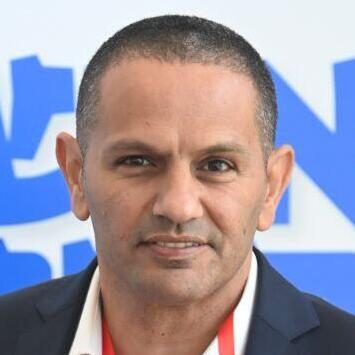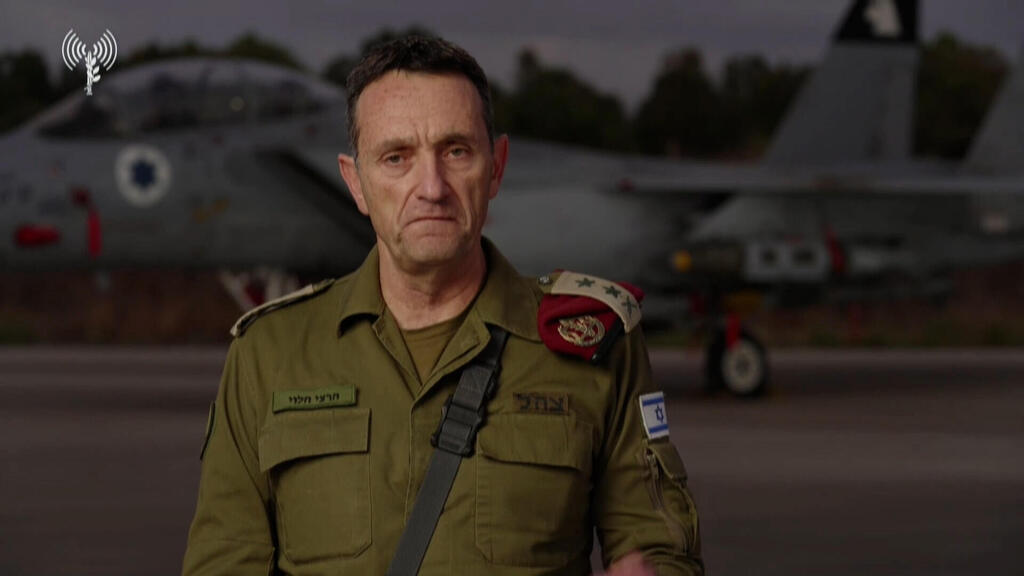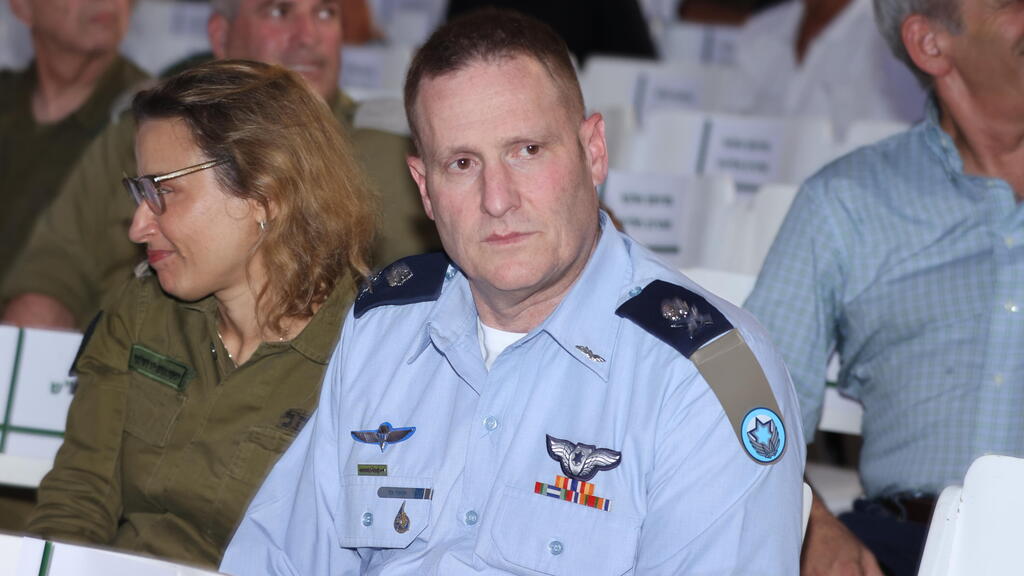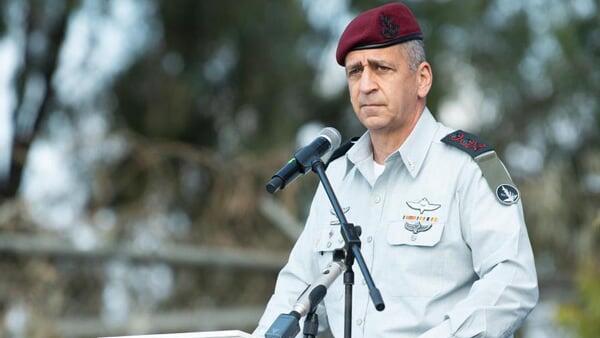Getting your Trinity Audio player ready...
Secondary explosions during airstrike on a building in a southern Lebanon village
(Video: IDF Spokesperson's Unit)
Anyone who listened to IDF Chief of Staff Lt. Gen. Herzi Halevi on Sunday shouldn't be surprised by Monday's bombing campaign, as the war with Hezbollah in Lebanon has entered a new and even more violent phase.
During his visit to the Tel Nof Airbase, Halevi was clear: Hezbollah would be hit again and again until it understood. Another message that went somewhat under the radar was that the rockets allegedly fired from Lebanon toward Ramat David Airbase and a Rafael defense facility were aimed at civilians, which, he emphasized, "no sovereign country can tolerate."
The implication is that Israel is declaring Hezbollah has violated the "rules of engagement" that governed the conflict over the past year, contradicting the organization’s previous claims.
The first wave of airstrikes began at 6:30 a.m., followed by a second at 11 a.m. By the time of this report, over 400 targets had been hit as part of a coordinated strategy known as the "Shock Plan." This strategy was first developed by the Israeli Air Force (IAF) 15 years ago under former commanders Maj. Gen. Amir Eshel and Maj. Gen. Amikam Norkin, and was further refined under current commander Maj. Gen. Tomer Bar.
In a document outlining the strategy, Maj. Gen. (Res.) Norkin explained that each strike should cause damage exceeding the enemy’s expectations of Israel’s capabilities and resolve, focusing on key operational structures essential to Hezbollah's functioning and victory strategy.
So far, the plan is proving effective. The IDF machine has been working non-stop, hitting distant targets as well as those near the fire control center in Northern Command. Much credit goes to the ex-IDF Chief of Staff, Aviv Kochavi, who laid the groundwork for this operation during his tenure as head of Military Intelligence and later as IDF Chief. Kochavi established the "Target Factory," where, with the help of advanced AI-powered robots and access to vast data resources, the military gathered intelligence used in the current strikes. The factory has not only generated pre-war targets but can also produce new ones in real time.
The goal is to strike hard and frequently, concentrating firepower to disable Hezbollah's missile capabilities and demoralize the group, making continued fighting unfeasible. The targets are carefully selected based on both geography and the specific Hezbollah assets Israel aims to neutralize, including Radwan forces, short- and medium-range missiles, and strategic "hot" targets that require immediate strikes.
The entire plan has been carefully packaged into the "Shock Plan," where the IDF outlined the objectives for the first day of fighting—an operation that has been practiced and honed for years. Unlike in Gaza, the IDF prioritizes rapid action in this campaign.
Despite the intelligence failure leading up to the October 7 attack, the IDF's recent intelligence work has been commendable. Over the past few years, extensive intelligence has been gathered on Hezbollah, enabling the military to identify and strike key targets using innovative methods. Without delving into details for security reasons, this intelligence has given Israel a significant advantage, not only damaging Hezbollah’s infrastructure but also creating a sense of total exposure, undermining the group's confidence.
This is crucial as the IDF prepares for the possibility of a ground invasion, where it would face a far more experienced and trained enemy than Hamas. However, the successes should not lead to overconfidence. Hezbollah remains a ruthless and capable foe.
As Defense Minister Yoav Gallant said this morning, "The public will need to remain calm," underscoring the importance of following Home Front Command directives. While current intelligence is effective at predicting Hezbollah’s responses and intercepting specific rocket barrages, some attacks will inevitably get through, and the public must be prepared. For now, we can hope the military will handle the rest.









